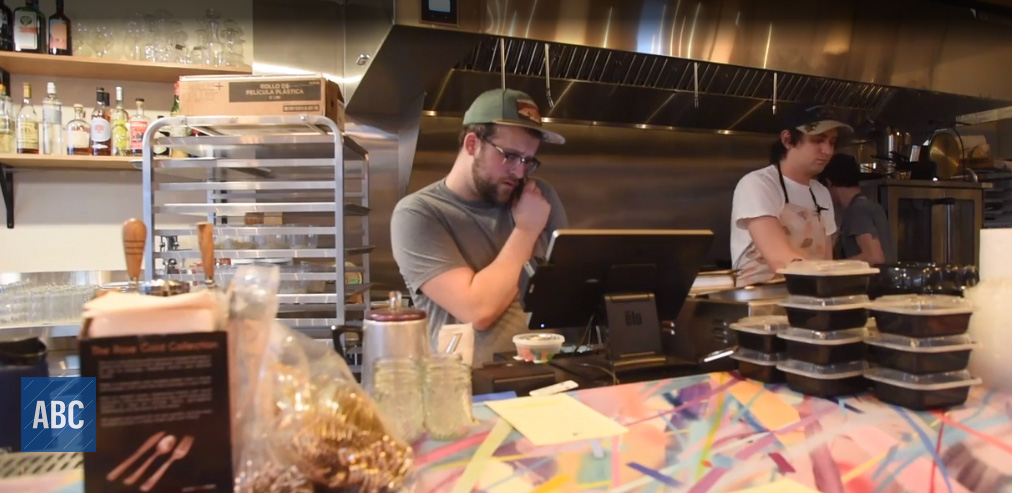How a brand-new restaurant tries to survive the coronavirus pandemic (Video)

Chef and first-time restaurateur Jarrett Stieber began service at Little Bear, his 30-seat restaurant on Georgia Avenue in Summerhill, Feb. 26. On March 14, Georgia Gov. Brian Kemp declared a public health state of emergency as the fallout from the COVID-19 outbreak began to hit home.
Little Bear’s dining room remained open through Sunday, March 15, and despite Kemp’s announcement, Stieber did not see a slowdown. He said that Sunday was the busiest of the three Little Bear has been open. The restaurant takes Mondays and Tuesdays off, and by the time it was set to resume business as usual on Wednesday, Stieber decided he had to make a change.
“I feel like I can handle this place and keep it super safe and we can do our part in that regard, but at what cost?” he said. “Is it worth the social stigma of staying open right now and then dealing with that down the road? Is it worth potentially getting somebody else sick who ate here and goes and visits their grandparents and gets them sick?”
This week, Little Bear has been serving its regular menu, slightly optimized for packaging in takeaway containers. The only changes being made are minor tweaks “to make sure every dish is decent to transport and isn’t as dependent on plating.” Customers call in their orders and pick them up from a gloved hostess. Because a meal at Little Bear typically involves several small plates, many customers will walk out of the restaurant with an actual crate full of paper boxes and plastic tubs. Those who are waiting for their food can order a quickly prepared drink.
Stieber declined to share numbers, but he said sales on the first night of to-go service “maintained a normal trajectory thanks to the support we’ve received from our community of regulars and our neighborhood.” Because much of the staff work front-of-house and for tips, the restaurant’s payroll has “doubled or tripled” to keep those employees paid. Alcohol service being significantly limited takes a large chunk out of the business too. And, simply offering food to go service comes at a cost: Stieber spent $650 on takeout packaging ahead of service Wednesday.
To make up for this, Stieber is asking customers to tip well and has included another line on receipts for direct donations. Little Bear is selling gift cards, and it has a @LittleBearATL Venmo account that customers can patronize when they are not ordering food. Stieber estimated Little Bear needs to sell “three times as much food as we normally do” to cover the loss of alcohol sales and the fact that he is paying tipped employees out of pocket.
“We’ll make it work as long as we need to make it work in any way possible,” Stieber said. “If we have to start bootlegging, if we have to do some random other [stuff] — we’ll buy vegetables in larger quantities from our farms we buy from and let people buy groceries from us, we’ll hustle toilet paper, I don’t care. We’ll find a way.
“I’ll find a way to keep the lights on. I’ll find a way to keep paying the staff. I haven’t worked for this for my whole life to see it come crumbling down for anything besides me mismanaging it. If I [mess] it up, sure, but that’s the only way this place is going down. I’ll find a way to make it work.”
——–
By Chris Fuhmeister, Atlanta Business Chronicle